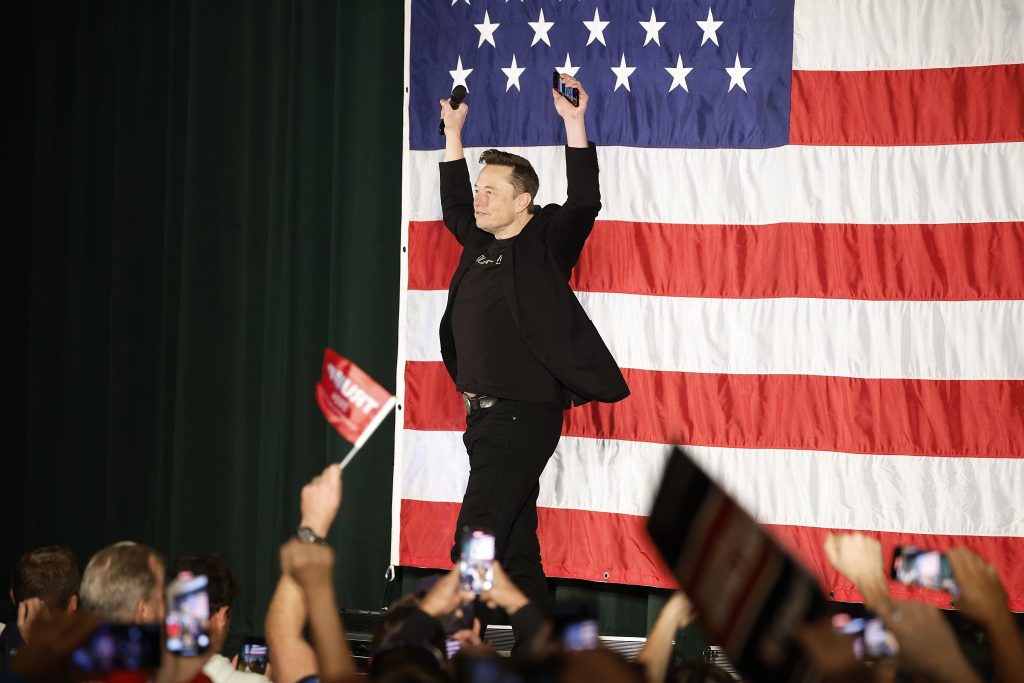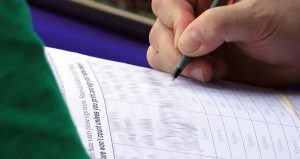Musk Offers Voters $1M Daily to Support His Campaign: A Controversial Move
In a bold move, billionaire Elon Musk has announced a $1 million daily giveaway until the U.S. presidential election on November 5. This initiative targets registered voters in key swing states and raises questions about legality and ethics. Musk’s cash giveaway connects to a petition from his political action committee (PAC), America PAC, which supports former President Donald Trump.
During a rally in Harrisburg, Pennsylvania, Musk revealed his plan to gather over a million signatures from voters who support the petition. “We will distribute $1 million daily to individuals who sign the petition until the election,” he stated. The petition emphasizes free speech and the right to bear arms, appealing to conservative voters in crucial battleground states like Georgia, Nevada, Michigan, Wisconsin, and North Carolina.

According to America PAC, a daily lottery will select one random voter who signs the petition. Participants must be registered voters in these key states. Additionally, those who refer others can earn rewards—$100 for each successful referral in Pennsylvania and $47 in other swing states. This strategy encourages participation and aims to create a ripple effect among potential voters.
Legal Concerns Arise
However, legal experts have raised concerns about Musk’s initiative. Federal law prohibits compensating individuals for voting or registering to vote. Critics argue that by offering financial incentives tied to voter registration, Musk may be interfering with the election process. Pennsylvania Governor Josh Shapiro has called the initiative “deeply concerning,” suggesting it warrants investigation.
Legal analysts are divided on whether Musk’s giveaway crosses legal boundaries. Some argue that while he is not directly paying people to vote, conditioning cash rewards on voter registration raises serious ethical questions. Derek Muller, an election law expert at Notre Dame Law School, noted that limiting prizes to registered voters could be seen as an attempt to pay for voter registration—a violation of federal regulations.
Musk Defends His Initiative
Despite these concerns, Musk remains undeterred. He defends his initiative as a way to raise awareness about constitutional rights and engage citizens in the electoral process. “The media won’t report on it; you have to sign a petition,” he stated during the rally, emphasizing his desire for increased public participation in democracy.

The timing of Musk’s announcement is noteworthy since it coincides with critical voter registration deadlines across several states. This strategic alignment raises questions about his intentions and whether this approach could sway undecided voters or influence overall turnout among Republican supporters.
Political Reactions
As the election date approaches, reactions from political figures continue to pour in. Some view Musk’s actions as a desperate attempt to mobilize support for Trump amid a challenging political landscape. Others see it as an innovative yet risky strategy that could backfire if perceived as manipulative or unethical.
Musk’s initiative has ignited discussions about the implications of wealth in politics. Critics argue that financial maneuvers like this allow billionaires to shape electoral outcomes in ways that may not align with democratic principles.
The Future of Democracy?
As this unprecedented situation unfolds, many wonder how it will impact voter behavior and the integrity of the electoral process. With only weeks remaining until the election, all eyes will be on Musk and his America PAC as they navigate this complex legal landscape while attempting to galvanize support for their cause.
The outcome of this initiative could set significant precedents for future campaigns and how financial incentives are viewed within American democracy. As voters weigh their options leading up to November 5, they must consider their choices at the ballot box and the implications of accepting cash rewards tied to civic engagement.

